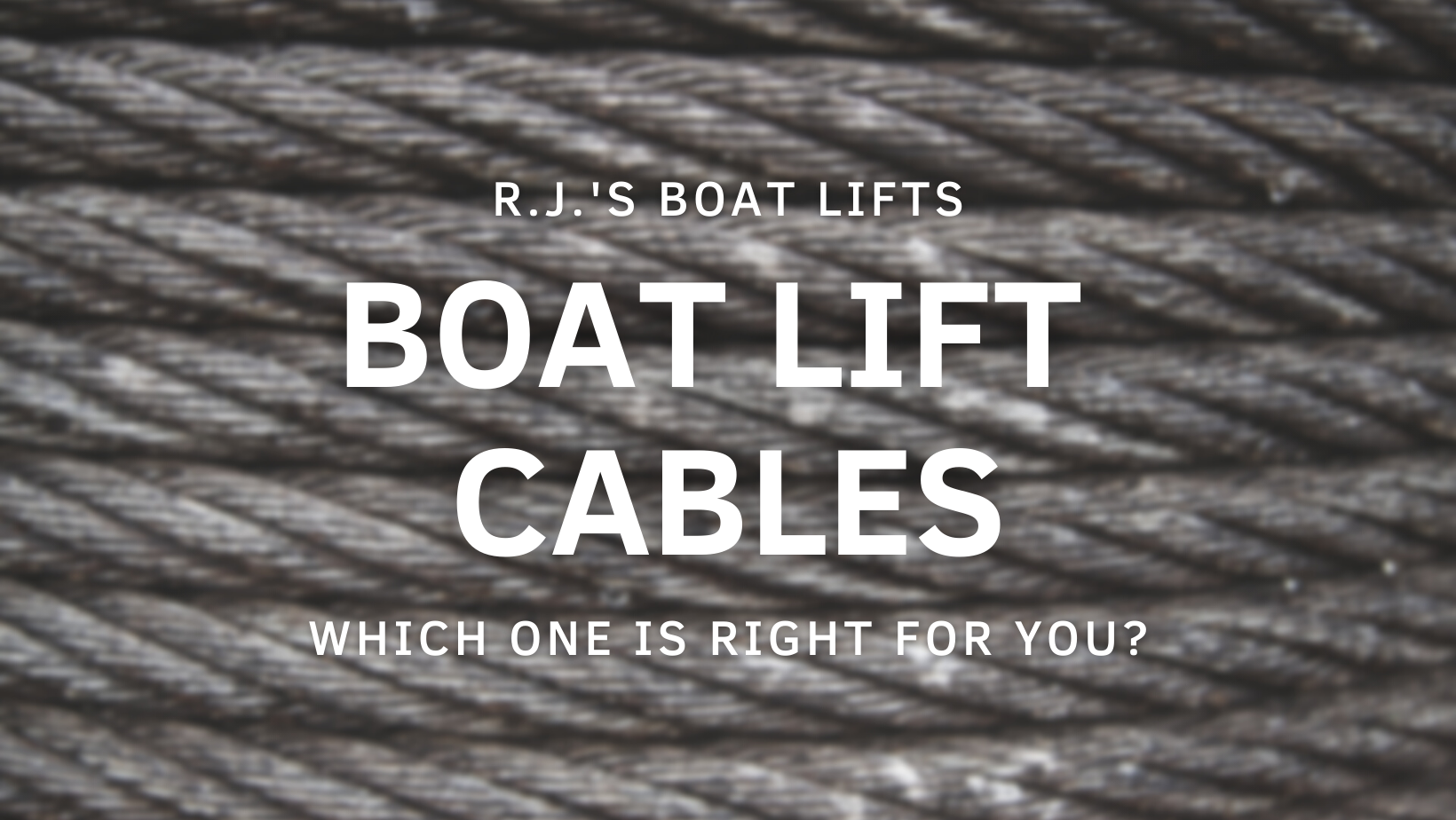
You head over to your boat one afternoon for a leisurely ride – when the unthinkable happens. A cable snaps, leaving your boat hanging haphazardly on the lift. You start to panic. What should you do?
You start by calling a boat lift repair company (that's what we do, by the way) and they say they can fix it. Perfect. But then they ask, "galvanized or stainless?" You ask them to repeat the question. They respond, "what kind of cable do you want?" Your heart starts to race. What now?
This article will introduce you to the two kinds of boat lift cable and how they differ, so you can make the best choice for your lift and schedule a re-cable (or cable replacement) with confidence.
First, let's start with some basic cable information.
Cable Basics
Boat lift cables, also called hoist cables or wires, are the four cables that connect to each corner of your cradle or straps. They are made of either galvanized steel or stainless steel. Lift cables will wear out over time, and will generally need to be replaced every few years.
"Wait," you be may be thinking, "were my cables bound to break?" The answer is yes. No matter what kind of cable you choose, you will need to replace them eventually. How soon you change your boat lift cables will depend on how much you use the lift, but three to five years is average.
This doesn't mean you should use your lift less. Enjoy it! Replacing your lift cables is part of owning a boat lift, just like checking and changing out your tires is part of owning a car. You don't drive less because you are worried about your tires wearing out – so you shouldn't be afraid to use your lift for fear your cables will wear out. It's normal!
But you may be wondering, "is one kind of cable stronger or less likely to wear out than another?" Not necessarily. Stainless steel lift cable isn't better or worse than galvanized cable (or vice versa) – they're just different. Which cable is best for your lift will depend on a few things.
Galvanized Cable
Galvanized cable is generally studier and more flexible than stainless steel cable – it will also show clear signs of wear before it breaks. The outside of the cable will rust, unlike stainless steel cable, which rusts from the inside out. Since galvanized cable does rust, it should not be used in saltwater or submerged for extended periods of time.
Overall, galvanized cable is more affordable, sturdier and easier to monitor for wear than stainless steel cable, making it the best choice for freshwater boat lifts.
Galvanized cable is...
Strong and flexible
Affordable
Best for freshwater boat lifts
Stainless Steel Cable
Stainless steel cable, on the other hand, costs more and is less flexible than galvanized cable – so it can't hold as much weight as a galvanized cable of the same width.
However, stainless steel cable is the best choice for saltwater boat lifts, since it doesn't rust on the outside. Instead, it wears from the inside out and does not give visible signs of wear. Small strands may break loose and be visible, otherwise, it is difficult to tell when your cable needs to be replaced.
When checking your stainless cable for loose strands, feel gently along the cable, but do so very carefully. Otherwise, you may end up cutting yourself.
Compared to galvanized cable, stainless steel cable is generally...
More expensive
Less flexible
Better for saltwater boat lifts
Conclusion
If you have a saltwater boat lift, consider using stainless steel cable that won't rust. Otherwise, we recommend using galvanized cable as it is the stronger, more affordable option.
No matter which cable you choose, you will have to replace your cables eventually. Your cables will wear with time and will need to be replaced roughly every three to five years – depending on how much you use your lift.
When the cables do break, don't panic! Do your research on which cable is right for you (like you did reading this article). Contact your local boat lift experts to answer your questions and get help replacing your cables – but most of all – don't be afraid to use your lift.
Happy boating!

